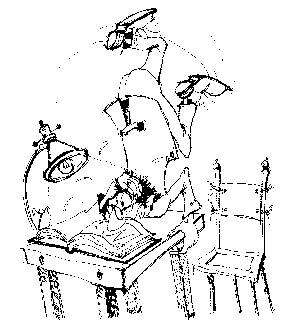
 |
||
| From Countries | ||
Ekaterina Batchvarova, Ekaterina.Batchvarova@meteo.bg
The Swedish Council for Planning and Coordination of Research (FRN), represented by Prof. Arne Jernelov and Ms Berit Ornevall, was the initiator of a long-term collaboration between FRN and the Bulgarian Academy of Sciences (BAS), which started few years ago.
Several international Workshops were organized in Bulgaria and funded by FRN in the fields of Air-Pollution modelling (1997), Alternative energy sources (1997) and Informatics (2000). Several research Swedish-Bulgarian projects were funded by FRN and are carried out.
During these years a number of young Bulgarian Scientists got supported through the Swedish IIASA funds to perform short summer projects at IIASA in Vienna, others were invited to share experience with colleagues in Sweden and write project applications.
Within this collaboration between FRN and BAS, another,
maybe even more valuable initiative was realized. In the summers of 1998, 1999
and 2000 three summer schools for Bulgarian and Swedish PhD students were
organized in Bulgaria with the purpose to help young scientists to develop
their abilities in communicating and be successful in applying for research
funding. Very few PhD summer schools in Europe are devoted to this topic. Thus
not only Bulgarian, but also the Swedish young scientists were interested and
participated all the seminars.
4-12 September 2000, Velingrad, Bulgaria
In Velingrad, for 9 days this year, more then 40 PhD
students and more then 10 scientists, called there lecturers/instructors, were
living together and working intensively. The students had to perform several
tasks:

- Learning and practicing the art of presentation, lead by Dr Karin Junefelt from Stockholm university.
- Evaluating real proposals and other students proposals.
- Writing a proposal.
- Work of the scientists with media, where Mary Ellen Gallaghar from IIASA was assisting.
Ten teams of three PhD students each were writing applications for interdisciplinary projects: trying to combine their different disciplines in one new idea. Then, to choose appropriate methodology to develop the idea and get results. Application of the results and dissemination plan were also required. Some teams happened to be consisted of a medical doctor, a linguist and a geographer or a musician. In other teams, different natural sciences and sociology were combined. In this way, the "game" was even more difficult than reality.
The PhD students got through practice the message: "In an application for funding every part has its own weight: the idea, the methodology and mostly the future application. A project with a brilliant idea but not prepared in the required way may get no attention. The cost-efficiency, the preparation in the required way and the presentation of the project are also important".
All the instructors, also chosen from different disciplines, were available for discussions on the projects at any time. All the activities were based on competition, including the social life, and created some stress for everybody, and made the conditions quite close to real.
The winner-team presented a project on "Wild life and Urban Sprawl - Assessing the impact of network infrastructure on bird migration on the Black Sea coast" and consisted of a biologist, a geographer and an engineer.
This third in a raw seminar was different in the way that 10 PhD students attended for a second time. They had the possibility to assist Karin Junefelt for the lectures and practice on the art of presentation with the first-year students. They performed press-conferences on different topics and made their own proposal trying to combine their disciplines.
In Velingrad, as a sign of recognition for his activities within the described Swedish-Bulgarian collaboration Professor Arne Yernelov was given the sign for merit of the Bulgarian Academy of Sciences in personal from the Main Scientific Secretary of the Bulgarian Academy of Sciences Professor Naum Iakimov.
Many PhD students and the Center for Education at BAS were involved in the organization of the three summer seminars, but the heart of them was Plamena Gaidarova, a PhD student and a participant in one of the Swedish-Bulgarian projects. Any further information can be obtained from:
Plamena Gaidarova, Plamena@mbox.cit.bg
Berit Ornevall, berit.ornevall@frn.se
 |
||
| From countries | ||